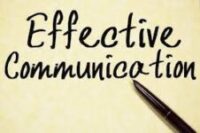
Soft Skills You Need to Work From Home Blog Series
- Home
- Blog
- Soft Skills You Need to Work From Home Blog Series
Soft Skills You Need to Work From Home Blog Series
- recruitadmin
- No Comments
- August 22, 2023
- 4:04 am
Introduction:
In recent years, the landscape of work has undergone a remarkable transformation. The traditional 9-to-5 office routine has evolved into a dynamic and flexible arrangement, allowing professionals to execute their tasks from the comfort of their own homes. This shift, accelerated by technological advancements and global circumstances, has given rise to the era of remote work—a trend that shows no signs of slowing down. By 2025 as much as 70% of the workforce is expected to work from home at least 5 days a month, there has never been a better time to start learning, or improving, the personal skills that will help make you a better remote worker.

As the boundaries between personal and professional spaces blur, it becomes increasingly evident that excelling in remote work requires more than just a reliable internet connection and a comfortable workspace. Enter the realm of soft skills—the intangible, yet invaluable qualities that can make or break your success while working remotely. These skills, often overlooked in traditional work environments, take on a new level of significance in the context of remote work.
In this blog series, we’ll explore the essential soft skills you need to not only survive but thrive in a remote work setting. From effective communication to adaptability, time management to emotional intelligence, these skills serve as the backbone of your remote work journey. We’ll delve into the intricacies of each skill, understanding their relevance, and providing actionable insights on how to cultivate and apply them in your day-to-day work life.

What Are Soft Skills Even?
At this point you might be wondering what soft skill are (or if you already know, you are ahead of the game!), put simply soft skills, also known as interpersonal skills or people skills, are a set of personal attributes and qualities that enable effective communication, collaboration, and interaction with others. Unlike technical or hard skills, which are usually specific to a particular job or task, soft skills are more about how you interact with people, manage yourself, and navigate social situations. They are essential for success in both professional and personal contexts.
Common examples of soft skills:
- Communication: The ability to convey information clearly and effectively, both verbally and in writing. This includes listening actively and responding appropriately.
- Teamwork: Working collaboratively with others towards a common goal. This involves being able to contribute ideas, compromise, and support your teammates.
- Problem Solving: Analyzing issues, finding creative solutions, and making decisions that address challenges effectively.
- Time Management: Organizing tasks, setting priorities, and managing your time efficiently to meet deadlines and achieve goals.
- Adaptability: Being open to change and able to adjust to new situations, environments, or tasks.
- Leadership: Inspiring and guiding others to achieve objectives while also demonstrating empathy and good decision-making.
- Empathy: Understanding and sharing the feelings of others, and showing consideration for their perspectives.
- Conflict Resolution: Managing and resolving disagreements or conflicts in a constructive and respectful manner.
- Negotiation: Reaching agreements that benefit all parties involved through effective communication and compromise.
- Critical Thinking: Evaluating information objectively, analyzing situations, and making informed decisions based on evidence and logic.
- Stress Management: Handling pressure and stress in a healthy way, maintaining emotional balance, and staying productive.
- Networking: Building and maintaining relationships with a diverse range of individuals, both within and outside your industry.

Conclusion
Soft skills are essential in the workplace as they contribute to a positive and productive work environment. They can influence how well you collaborate with colleagues, lead teams, handle conflicts, and communicate with clients or customers. Moreover, they’re not limited to professional settings; they are also valuable in personal relationships, education, and any situation where effective communication and interaction are important.
Employers often seek candidates with a strong combination of both technical skills and soft skills, recognizing that a well-rounded individual is more likely to contribute to a harmonious and successful work environment. This blog series will cover six of the soft skills that you can start working on today.
Speaking of your future, you can upload your resume to our site, you can also join this new networking site focused on remote workers.



Communication
Soft Skills You Need to Work From Home Blog Series
10 Essential Skills for Success in the Digital Job Market

The Rise of Remote Work: How to Thrive in a Virtual Career



